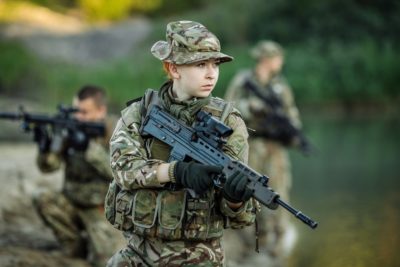How soldiers deal with the job of killing
“We talk about destroying, engaging, dropping, bagging – you don’t hear the word killing”. This article explores the effect of killing on people in the military, how many are unable to kill and others live with the effects of having killed for the rest of their lives. Also see The Kill Factor radio broadcasts.
When soldiers kills someone at close quarters, how does it affect them? This most challenging and traumatic part of a soldier’s job is often wholly overlooked.
Soldiers kill. It goes with the job, and they do it on our behalf.
But it’s an aspect of their work which is widely ignored – even by the soldiers themselves – and this can cause them great psychological difficulty, experts say.
“A central part of what we do with our careers is we kill the enemies of our country,” said Lt Col Pete Kilner, a serving officer in the US Army who has done tours in Iraq and Afghanistan.
“So it’s very important that we understand why, and under what conditions it’s the morally right thing to do to kill another human being.”
Lt Col Kilner also lectures at the West Point Military Academy. He calls himself a “soldier ethicist” and has talked with countless fellow soldiers about their experience of “intimate killing” – taking the life of someone up close, who they can see.
“They don’t like to talk about it. In general, if you’re a soldier and you’ve killed in war, you lie and say no.
“It tends to be the secret we have that we’re not proud of. We want to fight bravely, but it’s hard to be proud of killing another person.”
Such acts are veiled by jargon, or not spoken about at all, he says.
“We recruit people to kill. We train people to kill. We make the orders. Yet after the fact, we don’t talk about killing.
“We talk about destroying, engaging, dropping, bagging – you don’t hear the word killing.”
See more: conscientious objection, risks,










